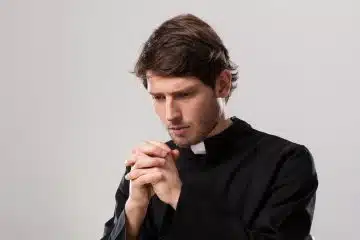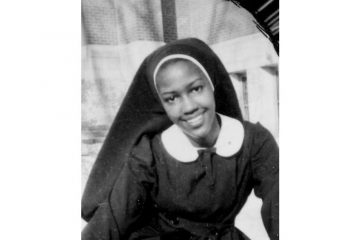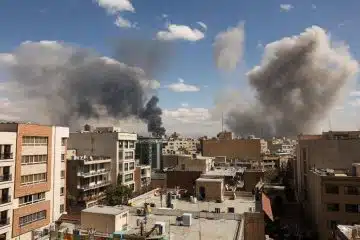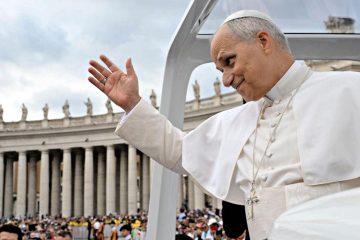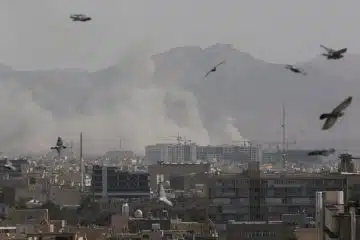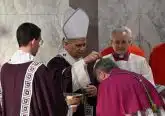The Catholic Moment: Serious Responsibilities
May 23, 2011
By Father Earl Fernandes
The recent death of Osama Bin Laden brought about mixed reactions. There were crowds rejoicing at the White House and in Times Square. For them, a wicked terrorist had received his just desserts. In the minds of the revelers, justice had finally been done. In contrast, Jesuit Father Frederico Lombardi, the Vatican spokesman, somberly stated: “In the face of a man’s death, a Christian never rejoices, but reflects on the serious responsibilities of each person before God and before men, and hopes and works so that every event may be the occasion for the further growth of peace and not of hatred.”
The occasion of Bin Laden’s death allows us to examine two questions: What does the church teach about terrorism and what are the “serious responsibilities” of the Christian? The Compendium of the Social Doctrine of the Church, issued in 2004 by the Pontifical Council for Peace and Justice, provides some guidance (nn. 513-520).
The Compendium describes terrorism as “one of the most brutal forms of violence traumatizing the international community today; it sows hatred, death, and an urge for revenge and reprisal.” Who cannot say that the events of 9/11 were traumatizing events, not only for the victims, but also for civilians in the ensuing reprisals in Afghanistan, Pakistan and Iraq? Who could not say the same about the decades-long actions of Libya’s Gaddhafi?
The Compendium continues its description of terrorism as a “shadowy network of political collusion” which “acts and strikes under the veil of darkness” without any regard for the rule of law. Acts of terrorism “strike at the heart of human dignity and are an offense against all humanity.” Rightly, the church’s magisterium condemns terrorism in the “most absolute terms” as showing a “complete contempt for human life” which “can never be justified, since the human person is always an end and never a means.”
The Compendium also condemns as “profanation and blasphemy” to declare oneself a terrorist in God’s name. Some terrorists claim to be “martyrs” for their faiths, but nothing could be further from the Christian concept of martyrdom, which involves witnessing to the love of God. Religions ought not to tolerate terrorism, much less preach it.
It is easy enough for Catholics to agree that terrorist actions are wrong. But the second question remains: What are the serious responsibilities of the Christian in the face of terrorism? First, the Compendium (513) states that “the fight against terrorism presupposes the moral duty to help create those conditions that will prevent it from arising.”
Second, while the Compendium condemns terrorism and argues that people and nations have a right to self-defense, it reminds us that the right to self-defense “cannot rightly be exercised in the absence of moral and legal norms, because the struggle against terrorists must be carried out with respect for human rights” and the rule of law.
Third, the Christian has the challenging duty not to extend condemnation of the individual terrorist and his personal actions to “the religions, nations or ethnic groups” to which the terrorist belongs.
Fourth, while proportionate force may be used in self-defense, it is incumbent upon the Christian, using reason, to examine why the terrorist attacks occurred. Attacks often occur out of desperation; the Compendium, quoting Blessed John Paul II, states that: “the recruitment of terrorists in fact is easier in situations where rights are trampled and injustices are tolerated over a long period of time.”
Fifth, the church is to be an “instrument of peace in the world and for the world” (516) but this is possible “only through forgiveness and reconciliation” (517), which in its authentic form demands justice and truth (518). Above all, it is “through prayer that the church engages in the battle for peace.”
It is easy to condemn terrorism. How much more difficult it is to claim that we have fulfilled our Christian duty with respect to being ambassadors for peace! Osama Bin Laden is gone, but our serious responsibilities remain.
Father Fernandes is an assistant professor of moral theology and dean of Mount St. Mary’s Seminary.



